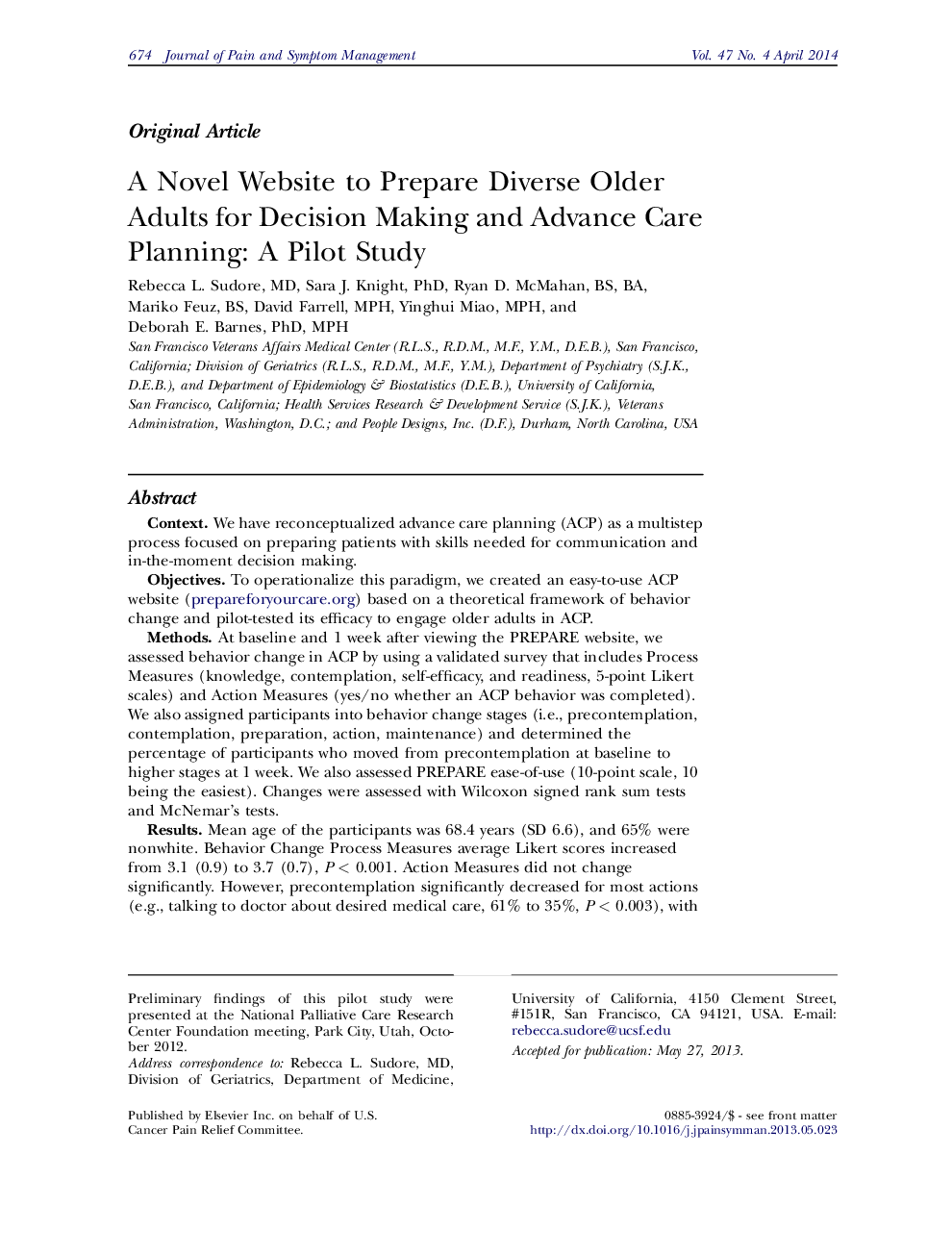| Article ID | Journal | Published Year | Pages | File Type |
|---|---|---|---|---|
| 2724172 | Journal of Pain and Symptom Management | 2014 | 13 Pages |
ContextWe have reconceptualized advance care planning (ACP) as a multistep process focused on preparing patients with skills needed for communication and in-the-moment decision making.ObjectivesTo operationalize this paradigm, we created an easy-to-use ACP website (prepareforyourcare.org) based on a theoretical framework of behavior change and pilot-tested its efficacy to engage older adults in ACP.MethodsAt baseline and 1 week after viewing the PREPARE website, we assessed behavior change in ACP by using a validated survey that includes Process Measures (knowledge, contemplation, self-efficacy, and readiness, 5-point Likert scales) and Action Measures (yes/no whether an ACP behavior was completed). We also assigned participants into behavior change stages (i.e., precontemplation, contemplation, preparation, action, maintenance) and determined the percentage of participants who moved from precontemplation at baseline to higher stages at 1 week. We also assessed PREPARE ease-of-use (10-point scale, 10 being the easiest). Changes were assessed with Wilcoxon signed rank sum tests and McNemar’s tests.ResultsMean age of the participants was 68.4 years (SD 6.6), and 65% were nonwhite. Behavior Change Process Measures average Likert scores increased from 3.1 (0.9) to 3.7 (0.7), P < 0.001. Action Measures did not change significantly. However, precontemplation significantly decreased for most actions (e.g., talking to doctor about desired medical care, 61% to 35%, P < 0.003), with a mean decrease of 21% (range, 16%-33%). PREPARE was rated a nine of ten (±1.9) for ease-of-use.ConclusionA new, patient-centered ACP website that focuses on preparing patients for communication and decision making significantly improves engagement in the process of ACP and behavior change. A clinical trial of PREPARE is currently underway.
